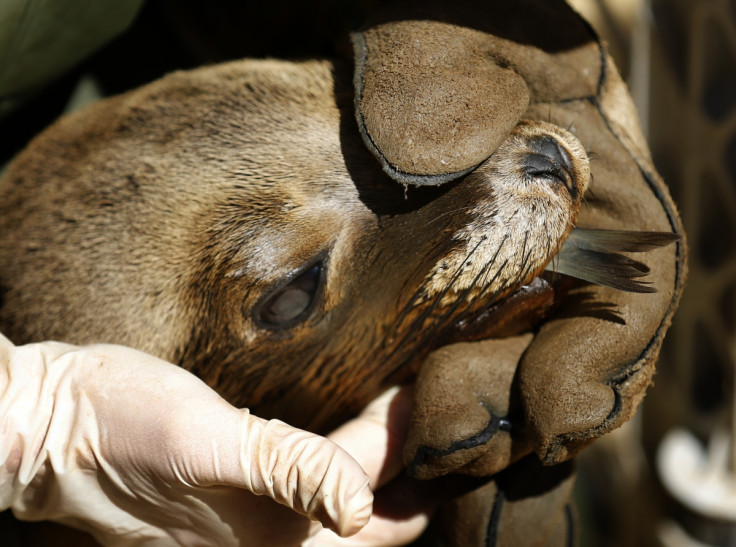Climate change is turning Pacific Ocean coastal waters acidic, scientists warn

Climate change is significantly altering the chemistry of the North American coastal Pacific into warmer, more acidic water with decreasing levels of oxygen that will seriously threaten marine life, scientists warn.
They add that the stretch of warming coastal waters from Mexico up to Alaska is an early warning sign of what to expect globally as they warn that global warming will make oceans more acidic and will see low-oxygen — or hypoxic — zones expand.
"Conditions observed along our coast now are forecast for the global ocean decades in the future. Along the West Coast, it's as if the future is here now," said Terrie Klinger, professor of the University of Washington's School of Marine and Environmental Affairs, who co-authored a report on the danger in Bioscience.
Oceans are increasing in acidity as they absorb about a quarter of the carbon dioxide released into the atmosphere annually from pollution. The change in seawater chemistry is a particular threat to marine life with calcium carbonate shells or skeletons, such as oysters, mussels and corals.
"We know that along the West Coast temperature and acidity are increasing, and at the same time, hypoxia is spreading," Klinger told Science Daily. "Our research recognizes that these climate change stressors will co-occur, essentially piling on top of one another. Many organisms will be challenged to tolerate these simultaneous stressors."
Extreme hypoxia can result in "dead zones" where mass die-offs of fish and shellfish occur. The waters along the West Coast sometimes experience both ocean acidification and hypoxia simultaneously.
"Along this coast, we have relatively intensified conditions of ocean acidification compared with other places. And at the same time we have hypoxic events that can further stress marine organisms," Klinger said.
An examination of the worsening Pacific conditions was conducted by a panel of scientists from Washington, Oregon and California, who pored over studies from the last several years for the latest report.
Just weeks before the Bioscience report, researchers announced that sea lion pups along the California coast were at their lowest weight in 40 years because of climate change. This is because the pups' mothers are forced to abandon them and leave them to starve for long periods of time as they chase fish deeper in the ocean to escape warmer water.
Scientists have also discovered that the sea lions are suffering brain damage from a tiny neurotoxin called domoic acid, produced by marine algae known as pseudo-nitzschia.
The blooms that produce the toxin flourish under warmer waters brought about by climate change. This year the algae triggered the unprecedented shutdown of the commercial Dungeness and rock crab fisheries throughout most of California.
© Copyright IBTimes 2025. All rights reserved.





















